Special Report
Maximize Convenience With These 12 Essential Rules for Grocery Delivery
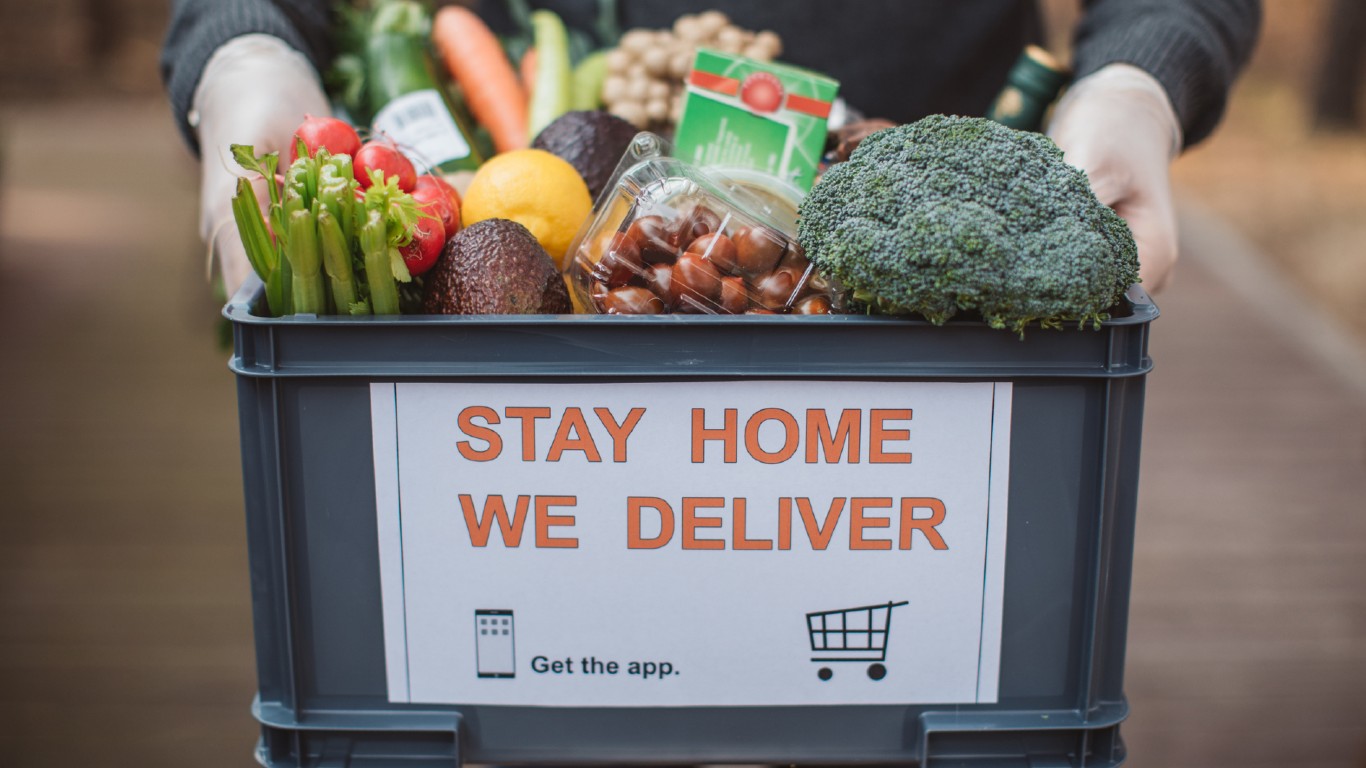
Published:

According to a study published in 2018 by the marketing blog Invesp about U.S. online grocery shopping statistics and trends, 48% of American food shoppers were already buying at least a portion of their groceries online, with that number expected rising to as much as 70% in 2022. The most important factors driving online food purchases were the fact that it saved time and was more convenient.
Concerns about in-person grocery shopping during the pandemic increased demand for delivery. Shopping for our food and sundry household items has been a part of our lives for so long that it’s hard for some of us to imagine handing the chore over completely to somebody else, even if we’ve taken advantage of shopping services for some of our needs in the past. But that’s the new reality — and there are advantages to online shopping.
For one thing, in addition to saving time and eliminating the need for a trip to the market, online shopping often provides a wider selection of products. (These are 20 foods to buy because of their long shelf lives.)
In addition, it might actually save you money, even taking into consideration delivery fees and driver tips: Whether you realize it or not, you probably used to spend a portion of your weekly grocery budget on impulse buys. Supermarket layouts are designed to encourage unplanned purchases. If you’re ordering groceries to be delivered, there’s much less opportunity to pick up something you may or may not need on the spur of the moment.
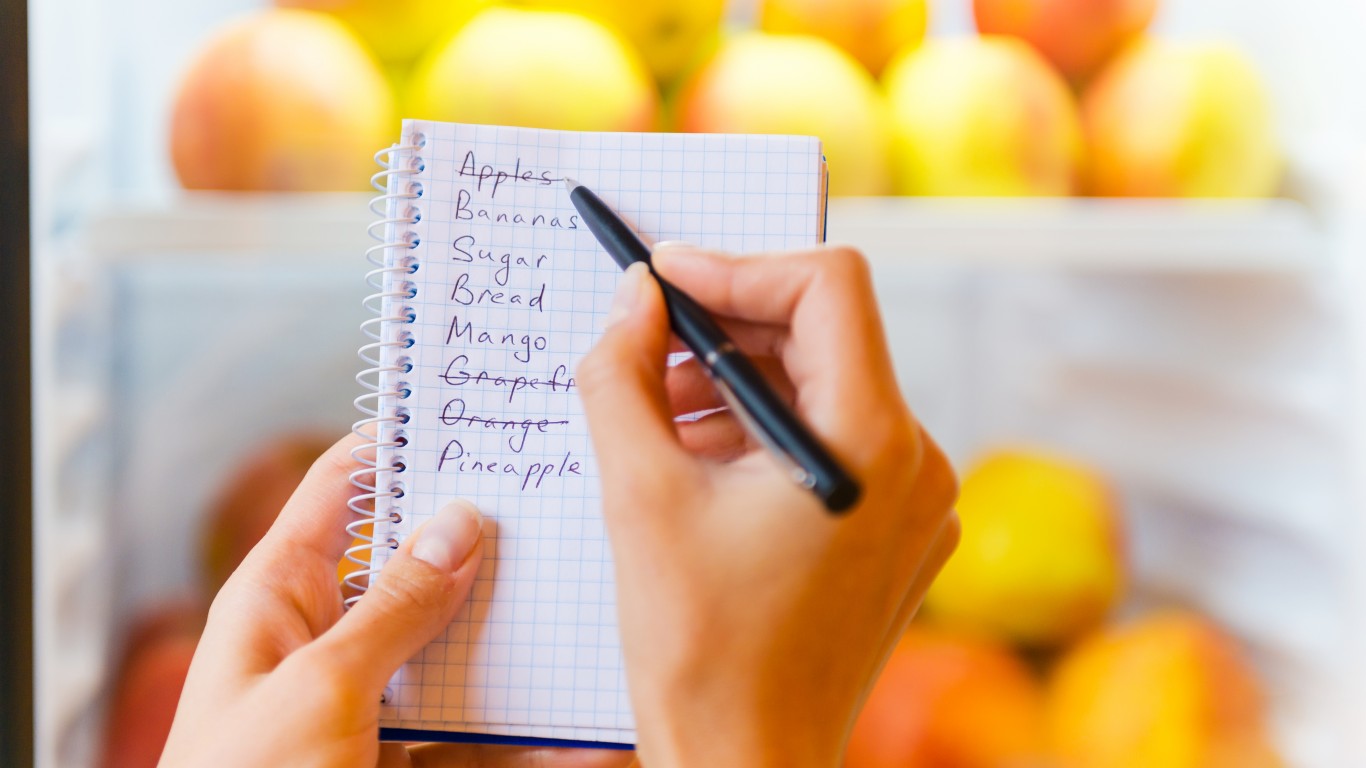
1. Keep a running grocery list
Just because you’re not going to the store yourself doesn’t mean you shouldn’t make a list. If you just go onto a store’s site and start picking things out, you’ll end up impulse-buying after all.
[in-text-ad]
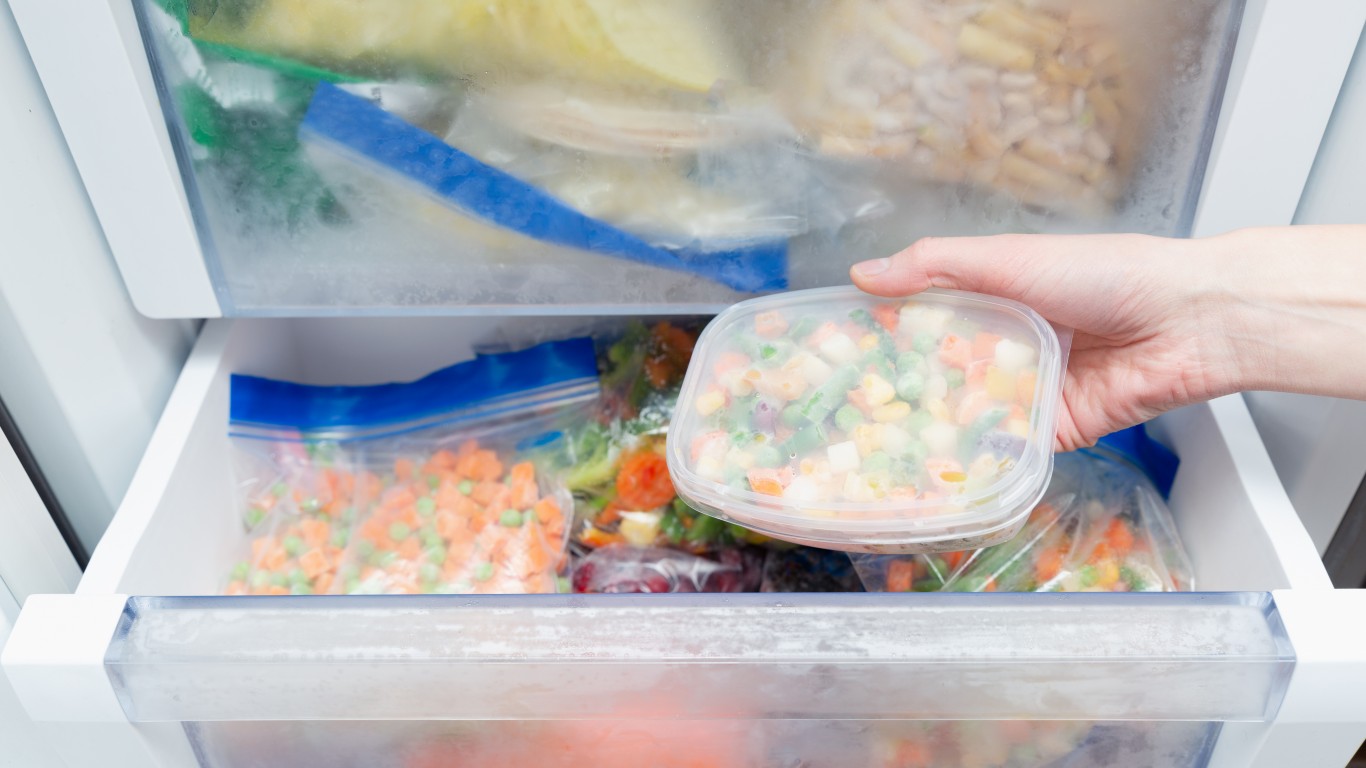
2. Do an inventory of what you have on hand
Before you place a grocery order, double-check your freezer and your pantry cupboards, and make sure you’re not reordering things you’ve already got in sufficient quantity. (If you’re ordering food that needs to be frozen, it’s also important to make sure you’ll have room in the freezer.)
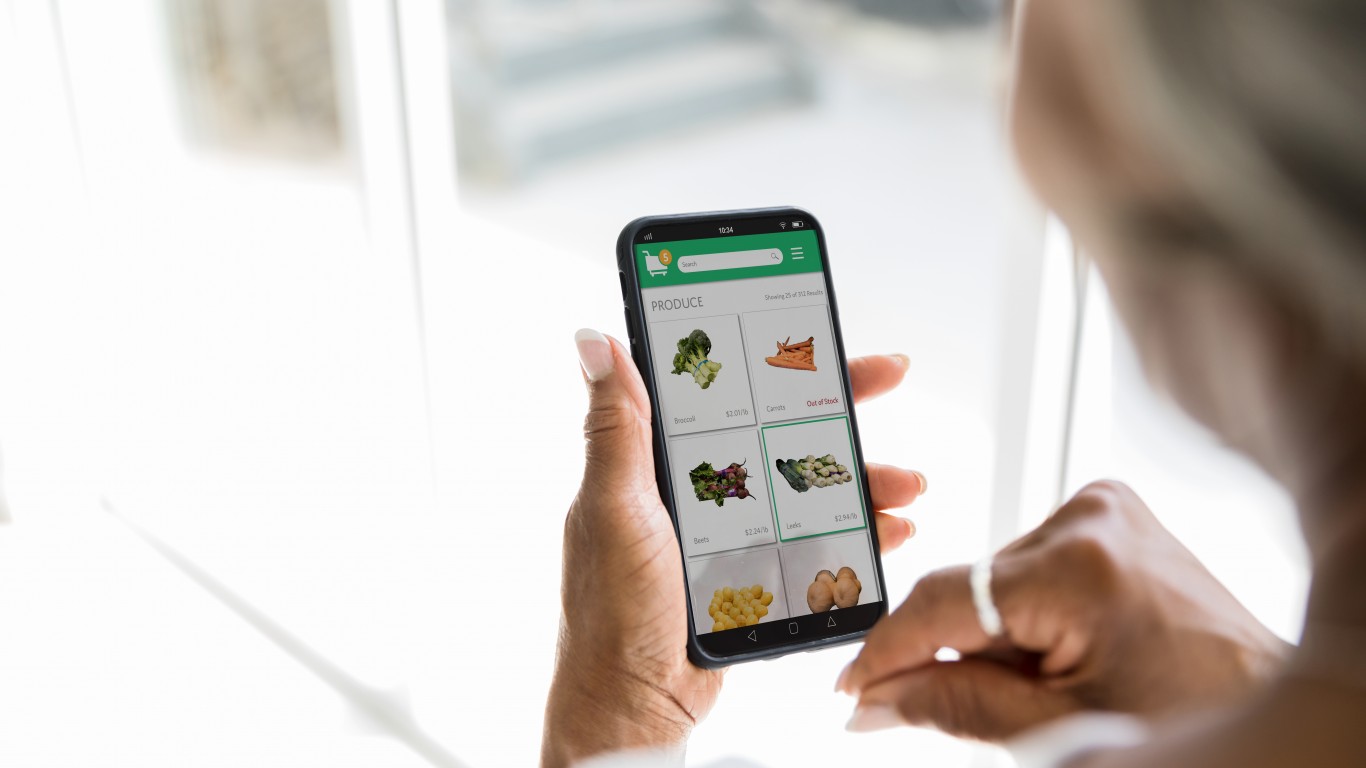
3. Be specific
To help your surrogate shopper pick out exactly what you want, be as specific as possible. Don’t just say “a head of lettuce” if you specifically want iceberg or romaine. And speaking of romaine, “a bag of romaine” could mean whole baby romaine leaves, chopped larger leaves, or one of those hearts-of-romaine bags holding three heads.

4. Attach a photo to your order
This won’t be possible if you’re using Instacart or some other online service or ordering directly from a grocery store. If an independent surrogate shopper is fulfilling your order, however, and you want a specific brand or flavor of some packaged food or some uncommon variety of produce, it’s useful to attach an image of exactly what you want.
[in-text-ad-2]

5. Consider substitutions
If there are no more blocks of Swiss cheese in the dairy case, will Jarlsberg do? If the chicken noodle soup is all gone, how about chicken rice? Supermarket sites usually give you the option to accept substitutes if your exact order isn’t available. If you’re using an individual surrogate shopper, let him or her know whether or not alternatives are okay — and if so, what the parameters are (“any flavor except habanero”).
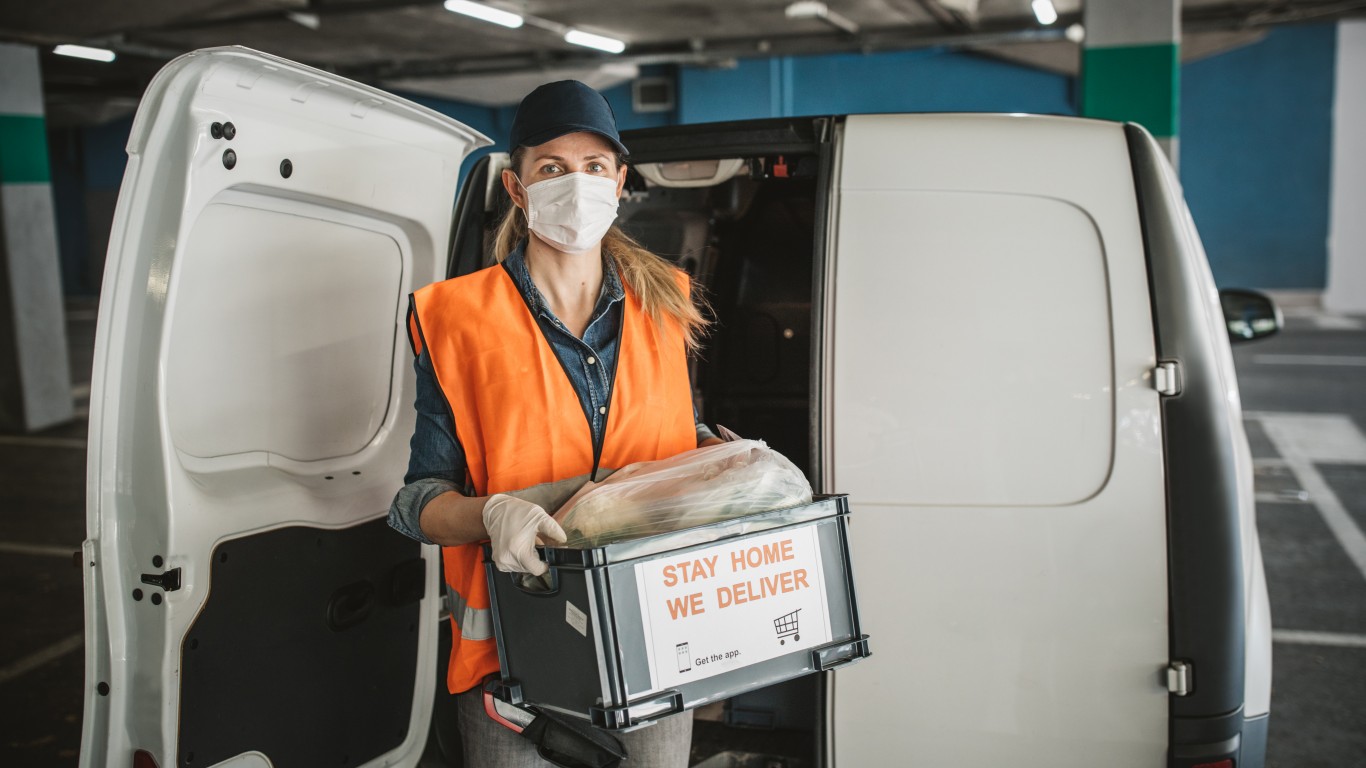
6. Don’t order too little
If you regularly use items with long shelf lives — like certain brands of breakfast cereal, canned chili, peanut butter, or dried pasta — buy several at a time to cut down on the size of future orders.
[in-text-ad]
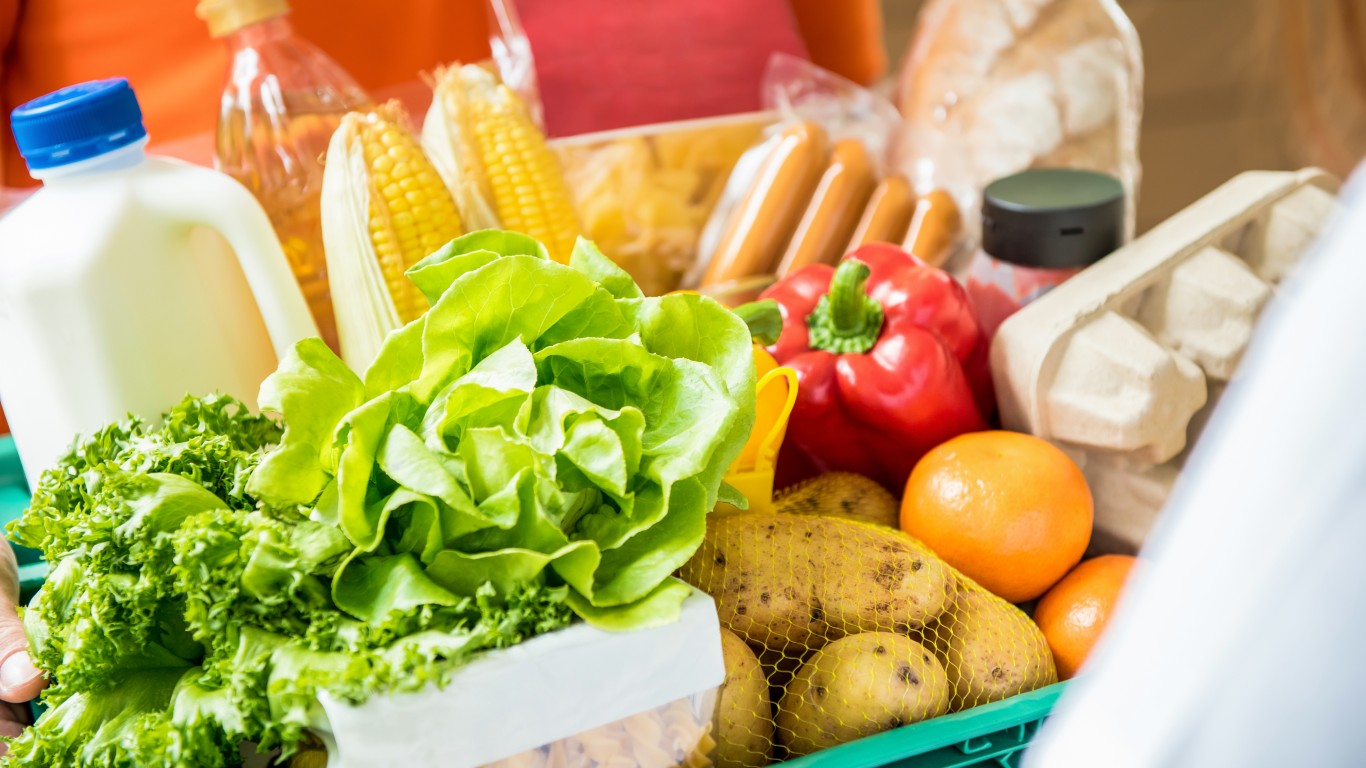
7. Don’t over-order
On the other hand, both to avoid wasting food that might go bad before you eat it and to show consideration for other shoppers, don’t buy more that you’ll be able to use within a reasonable period of time. Buying three boxes of Cheerios at a time is foresight; buying a dozen is hoarding.

8. Don’t forget the toiletries and over-the-counter medications
Most supermarkets carry ample selections of personal grooming items, medicine-cabinet essentials (adhesive bandages, for instance), vitamins, and non-prescription medicines like antacids, pain relievers, and allergy pills. Including these in your grocery order will save you a trip to the drug store.

9. Plan ahead
Grocery delivery services, whether large-scale operations or independents, are facing huge demand right now, and might not always be able to fill orders in a timely manner. In some cases, you may have to book a delivery a week or more in advance, but at the very least expect to have to wait two or three days between submitting your order and receiving your groceries.
[in-text-ad-2]
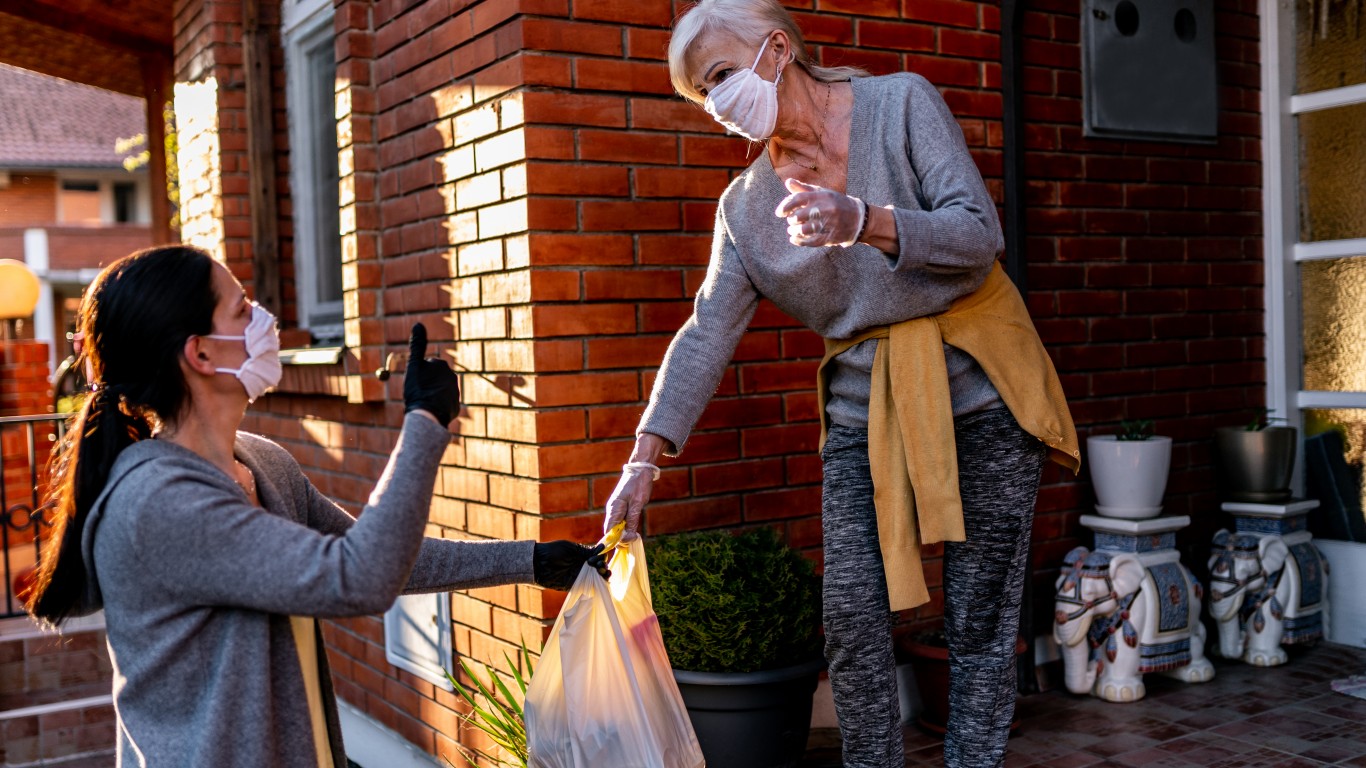
10. Tip generously
Even with safety measures in place, shopping for and delivering groceries can be a risky pursuit, and the people who are doing it are putting their own well-being on the line to perform a vital service. Be generous, showing your appreciation for them by tipping at least 10% of the grocery total (more if you can afford it), even if there’s already a service charge.

11. Expect some disappointments
Even if you’re specific about what you want and what substitutions you’ll accept, sometimes there are omissions or mix-ups. They’re rarely catastrophic. Unless they’re really essential, in which case your shopper or shopping service should be able to correct the error, just add them to your next shopping list.
[in-text-ad]
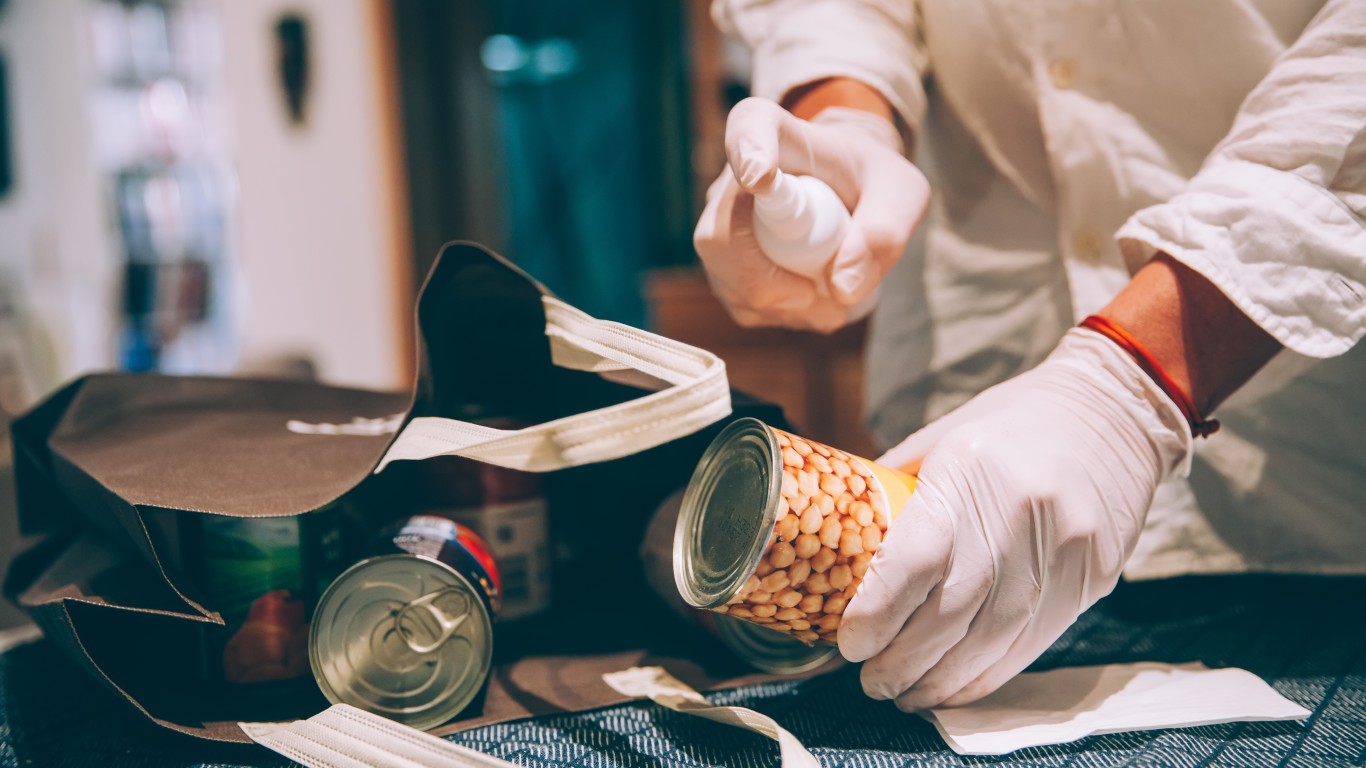
12. Clean or disinfect your groceries
While some experts say it isn’t necessary to clean packaging or produce when you’ve unpacked it, it’s safe to assume that anything that’s been on the shelves or in the produce bins at the market has been touched by numerous people. To be especially safe, then, disinfect packages with antiseptic spray or wipes or soap and water. Don’t use either directly on produce, though; just a thorough washing with warm water is enough.
After two decades of reviewing financial products I haven’t seen anything like this. Credit card companies are at war, handing out free rewards and benefits to win the best customers.
A good cash back card can be worth thousands of dollars a year in free money, not to mention other perks like travel, insurance, and access to fancy lounges.
Our top pick today pays up to 5% cash back, a $200 bonus on top, and $0 annual fee. Click here to apply before they stop offering rewards this generous.
Flywheel Publishing has partnered with CardRatings for our coverage of credit card products. Flywheel Publishing and CardRatings may receive a commission from card issuers.
Thank you for reading! Have some feedback for us?
Contact the 24/7 Wall St. editorial team.